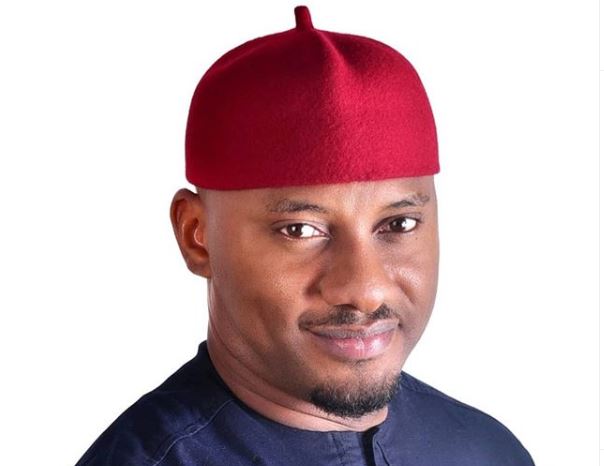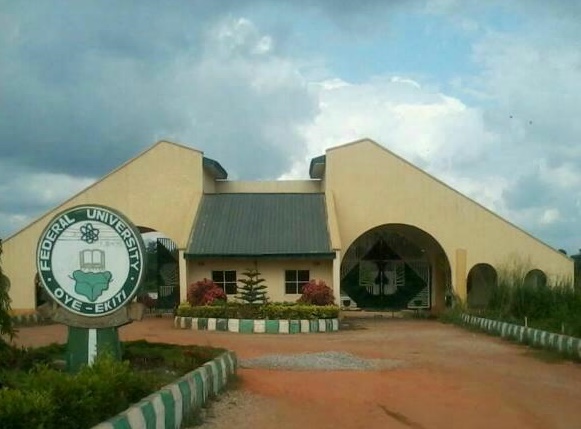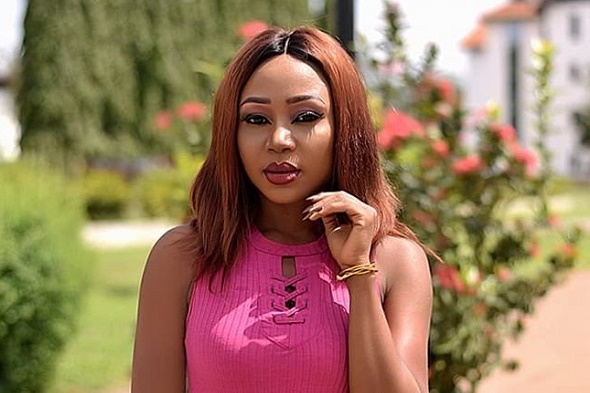BY OSARUONAMEN IBIZUGBE
Deborah Joseph was 18 years old when life as she knew it ended. “It was a painful experience,” she recalled as she narrated being raped by her then-boyfriend, whom she trusted and in a space which she assumed was safe.
“He invited me to his house and I went. On getting there, he offered me a drink. I said I didn’t want anything but he insisted on buying me a drink which I then accepted. He went ahead to get me a soft drink.
“I can’t say if the drink was laced or not; I remember that he asked me if I had another boyfriend, I told him no and then he asked me if I’ve ever had sex, I answered again with no.
Advertisement
“He went ahead to say he wants to have sex with me before I leave his house. I refused, telling him that I have never ever had sex before, I was a virgin and new to sexual pleasures.”
He felt slighted by her refusal and it was at this point his demeanor changed and he moved to overpower her, violating her and changing the course of her life, forever.
“And then all of a sudden, he pushed me against the bed, held me firm, and covered my mouth. I struggled to scream but he overpowered me and forced himself on me,” she painfully recounted.
Advertisement
Deborah’s experience is an example of the plight of many young girls/women in a system that does little or nothing in protecting the vulnerable.
According to the Nigeria Demographic and Health Survey, 31 percent of women aged 15 to 49 have experienced physical violence and 9 percent have experienced sexual violence. Meanwhile, 58 percent of every married woman who reported experiencing physical violence were said to have suffered it from their husband/partner.
While a lot of women have to deal with the trauma of memories from the assault, Deborah’s life took another turn as she became pregnant.
NEW, UNPLANNED REALITIES
Now 20 years old, Deborah sits quietly in her home at Garaku, a village in Kokona LGA of Nasarawa state, north-central Nigeria, reminiscing on what her life could have been, had that day not happened.
Advertisement
Children are said to be blessings from God but when she thought of blessings at age 18, being a mother was not on her list at the time. Born in an environment with limited resources and opportunities, Deborah’s prayers were tilted towards better access to education and a better life. Now she has an unplanned mouth to feed and a recurring reminder of the violation of her human rights.
The issue of rape is one that constantly generates heated debate, reactions, and suggestions geared towards clamping down on perpetrators of the act.
Data from the Nigeria Police Force (NPF) shows that the number of females that experienced rape/sexual abuse in 2017 was 18 out of 26 cases reported. In 2018 and 2019, 62 and 59 cases were reported respectively, of which the number of females was 60 and 56 persons.
When pregnancies occur as a result of rape, parents and family members sometimes force young girls to marry their abusers for several reasons; their inability to care for the pregnant girls and fear of societal reaction, and stigmatisation.
Advertisement
In Deborah’s case, efforts were made by her family to get the abuser to marry her or take responsibility for her unwanted baby — but the boy’s family forbade him from having anything to do with her. They insisted that their son, despite forcing himself on her, was not old enough to cater for a child.
“When I found out I was pregnant, I was scared. I didn’t know how to tell my mother. One day, I got home from school, I noticed I wasn’t feeling well and my mum noticed as well. When she asked, I told her nothing was wrong,” Deborah said.
Advertisement
“Until when my uncle came and insisted I was taken to the hospital, that was when my pregnancy was discovered. My mum was mad at me, she asked me who was responsible and I told her.”
Jade Olise is a family lawyer at the forefront of the fight against sexual and gender-based violence (SGBV). She believes there’s still a chance for Deborah to seek justice by reporting the incident to law enforcement agencies.
Advertisement
“She can report to the authority, have him arrested and prosecuted. The matter of proving the case becomes where the tough part is but then it can be done,” Olise said.
“No matter how long an offense has been committed, if the survivor is embodied enough to talk about her situation, maybe after dealing with the trauma that had happened with the incident, the survivor can go ahead to pursue justice even though there might be some challenges.”
Advertisement
The lawyer however raised concerns about the survivor’s ability to prove she was raped given the fact that the incident happened a long time ago.
“The challenges of proving rape are huge because it’s a serious crime that requires the presence of certain elements that must be present to prove the case beyond reasonable doubt,” she added.
“People need to report issues and speak up rather than covering up. All of these add up to the delay in the justice system.”
Statistics from the National Demographic Health Survey (NDHS) have it that more than half of women (55 percent) who have experienced physical or sexual violence never sought help while only 32 percent have sought help.
DESPITE INCREASED ACTIVISM AND AWARENESS, SGBV PERSISTS
The World Bank has described SGBV as a global pandemic that affects one in three women in their lifetime. Issues surrounding SGBV have gained more attention over the past year as the COVID-19 pandemic resulted in a surge in cases across Nigeria.
The fight against SGBV is still challenging as most victims, understandably, lack the courage to speak up. This is so because cases of women and girls who speak out are, after a while, swept under the rug without justice being served.
Hamzat Lawal, CEO of Connected Development, says policymakers and civil society organisations must rise to the occasion of protecting vulnerable women and girls by creating safe spaces for them.
“We have failed Deborah. We have failed her six-month-old child,” Lawal said.
“Because if we have not failed her, society would have risen to the occasion and ensured that the person who perpetrated this is prosecuted and brought behind bars and she will see justice.”
Speaking from the point of advocacy, Chioma Agwuegbo, the CEO of TechHer, an organisation championing the SGBV fight in Nigeria, complained of negligence on the part of the government.
“I strongly believe that sexual and gender-based violence will always remain in societies, however, I also believe that we can work to reduce the incidence of these violent acts to the nearest minimum and that’s what Nigeria is not doing actively,” she said.
In November 2019, Nigeria launched its first national sexual offenders register, creating a database of those convicted for sexual violence, a step towards ending SGBV.
However, experts say several cases have not been reflected in the register while pictures of some perpetrators were said to have been excluded.
HOW EFFECTIVE ARE LAWS MEANT TO PROTECT WOMEN/GIRLS?
The Violence Against Persons Prohibition Act (VAPP Act) which was passed into law in 2015 is the legislation that seeks to protect vulnerable women and girls against any form of violence.
However, Ene Ede, coordinator of the VAPP in the federal capital territory (FCT), says the act is grossly under-enforced.
“In all my life, it is the most frustrating work I have done,” she said.
“It is traumatising. It gives you mental trouble because you have seen the opportunity to prosecute, and the opportunity to change behavior and it is not happening.”
She charged state actors on the effective implementation of the law for the benefit of vulnerable Nigerians. Ene, who works directly with SGBV survivors, frowned at governments at all levels for not doing enough to ensure full implementation of the law.
THE CALL FOR SGBV ‘VICTIM SUPPORT FUND’
Dorothy Njemanze is the founder of Dorothy Njemanze Foundation, an NGO working to end SGBV through direct support for survivors across the country.
She advocated for the provision of an SGBV support fund to help cater to the needs of teenage mothers; such as basic healthcare, feeding education, and clothing.
“Until we have a victim support fund that is realistically to cater for SGBV survivors, we will continue failing,” she said.
“Until there is a round-the-clock response to SGBV, we’ll continue failing, until SGBV stops getting treated like a civil service matter but a fundamental human rights matter that deserves round-the-clock attention, then we keep failing.
“And the biggest of all; until we all come out to use our permanent voter cards (PVCs) and remove everybody, house of assembly, senate, house of representatives and all who are responsible for the non-implementation of the VAPP law, we’ll continue encouraging sexual and gender-based violence to thrive.”
Despite her ordeal and associated trauma, Deborah still dreams of pursuing her education but given her present situation, it appears to be a tall order.
“I desire to go back to school, rewrite my WAEC because I didn’t make all the papers when I sat for it before, and then go to university,” she said.
“For me to do that, I need people’s help. I need to be able to cater for my daughter and also my mother and younger brother.”






